Customer onboarding is one of the most critical stages of the customer journey.
It’s when you reassure customers that your product is the best choice, helping them gain confidence in your offering.
However…
If you fail to deliver a great onboarding experience, users may lose trust in the product, resulting in a high customer churn rate.
But what exactly are the customer onboarding challenges that can keep you from delivering a delightful experience?
We’ve included insights from industry leaders like Rod Cherkas (CEO, Hello CCO), Brian Nicols (User IQ), Rajesh Veedu (Spiceworks Ziff Davis), and Rocketlane’s CEO Srikrishnan Ganesan on the most common customer onboarding challenges and how to overcome them.
We’ll also show you how to streamline your customer onboarding using Rocketlane.
Let’s get started!
4 Common customer onboarding challenges
So you’ve managed to get potential customers to the signup stage, battle won, right?
Not exactly!
It’s only the start of multiple challenges in the customer onboarding journey.
Let’s examine possible customer onboarding challenges, their causes, and the best solutions.
Challenge #1: User abandonment prior to activation
A major challenge to the digital onboarding process is not getting users to the activation point — when users become active and begin performing key actions within your product.
Why is it important to focus on activation?
Because your activation rate directly impacts your MRR (Monthly Recurring Revenue). You need to show each new user the value of your product if you want them to continue using it.
So what causes user abandonment before they reach the activation point?
A. Causes
User abandonment may be caused by:
1. Customer expectations: There may be gaps between a customer’s understanding of the post-sale process and the actual onboarding process. This includes cases where time, resource, and effort expectations from the customer’s end are not accurately detailed in the sales cycle.
2. Perceived lack of value or functionality: This may occur if your customers don’t experience the value you promised you would add to their business. The longer it takes for customers to experience value delivery, the greater the chance of user abandonment before activation.
B. Solutions
1. Align Stakeholders’ Expectations
- Set realistic expectations for the customer onboarding process: Bring together all stakeholders, including those involved in pre-sales, customer data onboarding, etc., and ensure everyone’s on the same page from the start.
- Inform customers of how your post-sale teams function: Let customers know when the implementation specialist will take over, the scope of your CSM's (Customer Success Manager) work, and other essential details.
Could you be delaying your customers’ entire onboarding process? Find out in this video:
- Set timelines throughout the onboarding journey: After conservative timelines are set, hold another stakeholder meeting. If your new client is moving to your product from a different vendor, bring everyone to agreement about the minimum viable product features required to have the client go live with your product and discontinue the previous product or service altogether.
2. Prioritize Value Delivery
Your client onboarding process should focus on providing each client with the value you promised your product/solution would add to their business. For this, you’ll need to focus on:
- Identifying First Value Delivered (FVD) and figuring out what value to deliver for each new client.
- Offering implementation assistance and user onboarding training.
- Ensuring customers can easily access personal and digital onboarding support.
- Identifying customers’ milestones and celebrating their success.
- Actively getting feedback from your customer.
- Tracking customer satisfaction and value delivery using key metrics (e.g., Time to Value (TTV), Customer Renewal Rate, Daily Active Users (DAU), and Monthly Active Users (MAU).
Challenge #2: Customers aren’t adopting key features
After overcoming the first onboarding challenge and activating more users, focus on getting customers to utilize your product’s key features.
The process of feature adoption in digital onboarding usually involves the following six steps:
- Awareness
- Interest
- Evaluation
- Trial
- Activation
- Adoption
But feature adoption isn’t always a smooth process.
Let’s look at the biggest barriers in the way of customers familiarizing themselves with your product’s key features:
A. Causes
1. Insufficient training: Inadequate early training will directly hurt value delivery, which may lead to customer churn. For instance, if users aren’t sufficiently trained on your product, they may miss out on the features that offer them the most value.
2. Too much information: Conversely, during the onboarding journey, users may experience information overload and feel so overwhelmed that they fail to learn your product’s key features.
3. Features don’t integrate seamlessly with customers’ activities: If your training doesn’t focus on meeting the customers’ needs and providing value, they may fail to adopt key features altogether.
B. Solutions
1. Tailor the customer education to each new customer: Focus on value for the customer, not just your key features. All aspects of the training should tie back to the customer, their experience, perspective, and what they can do with the product.
This should include a mix of:
- Standard training sessions
- Customized training after discovering more about the customer’s needs
2. Share resources that customers can access when they’re ready. Ensure customers have easy access to self-service training such as manuals, videos, etc., which will simplify the customer onboarding experience.
Examples of resources to share with customers include:
- Best practices and new user guides to get the most from the product
- Document various use case templates on kickoffs, Statements of Work (SOW), handoff process, etc., to help get customers started
- Demo recordings and video recordings of all your workshops and training sessions with them
- Customer-facing portal guide
- Technical documentation and feature descriptions
- Training videos to help with the product setup
Challenge #3: Excessive support requests
Your users will require assistance during the onboarding process. However, many SaaS customer support teams are overwhelmed with requests.
This customer onboarding challenge can have long-term repercussions on the capacity of your customer onboarding team. If your team cannot keep up with these support requests, customers might become frustrated, leading to churn.
An overwhelming number of support requests can also lead to burnout among your customer service and customer success team members.
A. Causes
1. Insufficient training during the onboarding process: Many SaaS providers use customer education that focuses on the product rather than what the customer needs to achieve with the product.
2. Inadequate hand-holding in the early stages of using the product: If your customers don’t receive support in the initial stages of the client onboarding process, they won’t learn to use the product in a way that benefits them, resulting in a high number of support requests.
B. Solutions
1. Ensure value-focused training: The training should help the new customer find value in your product as soon as possible. For this, you should focus on their needs.
Here’s how to do it:
- Make your onboarding program interactive and conversational. Ask questions and allow customer feedback rather than simply talking about your features.
- Discuss the customer’s real-life problems and how the product’s features can solve them.
- During training sessions, let an existing customer share their screen and demonstrate how they’ll use the product.
2. Offer customer support through consistent engagement: It’s important that your onboarding team encourages customer engagement in the first 90 days they use your product.
Once the onboarding process is complete, your onboarding team should pass on any valuable information they acquire about the customer to the customer success team to be used throughout the customer lifecycle. This will help with value realization, which in turn will improve customer retention.
Ensure that there’s a communication channel open that allows for quick and easy interaction. Consider utilizing a tool like Rocketlane to enable and streamline real-time communication during the onboarding process.
Challenge #4: High churn rate
Another concern is a high customer churn rate — i.e., the rate at which an existing customer base cancels their subscriptions over a specific period.
While every industry has an acceptable level of churn, businesses should worry when their numbers go beyond benchmark levels, particularly during the customer onboarding process.
Let’s explore why this might happen.
A. Causes
1. Treating all customers the same: Each of your customers is utilizing your product to solve a unique problem. If your user onboarding process does not acknowledge this, customers may feel left out and pigeon-holed, leading to them churning.
2. An inefficient onboarding process: If your customer onboarding process causes more problems than it solves for the customer, they are unlikely to continue.
B. Solutions
1. Stay sharp with the First Value Delivery (FVD) framework: Identify the quickest path to value for each customer. To do this you’ll need a strong customer relationship and fine-tuned understanding of customer expectations.
According to Irit Eizips, CEO at CSM Practice, onboarding goals can be categorized into these quadrants:
- Quick wins: low effort, low customer impact
- Home runs: low effort, high customer impact
- Long-term wins: high effort, high customer impact
- Nice-to-have: high effort, low customer impact
Then, you can use that information to figure out what the FVD for the new client will be and prioritize customer success. This strategy is critical for ensuring customer retention.
2. Keep customer onboarding simple: Don’t over-complicate the onboarding process. You could use a customer onboarding playbook (a comprehensive reference guide) to help define each stage of onboarding. It will help you deliver a simple, consistent, adaptable customer onboarding experience.
Besides this, focus on keeping your communication during the onboarding program simple and jargon-free. Make sure everyone is on the same page and sticks to timelines.
Addressing each of these challenges, one by one, sounds like hard work, doesn’t it?
We have a better solution — a one-stop customer onboarding destination that nips them all in the bud!
Streamline customer onboarding with Rocketlane
Rocketlane is a collaborative onboarding solution that can help you tackle the challenges associated with client onboarding.
With Rocketlane, you can:
1. Align everyone’s expectations, make a great first impression and prevent users from abandoning your product during client onboarding.
How?
By winning your customers’ confidence with a great onboarding program. From the start to value delivery, you can collaborate with customers and provide visibility into the onboarding workflow, goals, plans, and statuses.
With this onboarding solution, you can view all your projects at a glance, get a quick overview of project statuses, and identify and address any problems.
You can also quickly and easily send status updates to all stakeholders.

2. Easily collaborate with your team and customers in real-time.
Rocketlane offers stakeholders a frictionless onboarding experience by eliminating many of the time consuming manual processes typically associated with commercial customer onboarding.
For example, you can send automated email reminders to customers when tasks start or end and avoid having to follow up with customers at every step.

3. Tailor each customer experience and impress them with interactive walkthroughs.
Every customer has access to their own simple, tailored portal.
You can create project templates customized to different customer segments like size, industry, maturity level, or implementation complexity.

4. Share the right resources with customers at the right time.
Speed up your onboarding program, ensure a smooth onboarding workflow, and don’t waste time on slow, silo-ed emails.
With Rocketlane, you can have real-time conversations and receive customer feedback. You can also create and edit documents, such as meeting notes, critical handoff documents. and other customer data within the app.
Moreover, you get full context on projects with all documents organized in one place.
Offer support with consistent customer engagement throughout every stage of the customer journey, from training to data onboarding, and beyond.
The Conversations tab is available for documents, tasks, and files, helping you keep the lines of communication open, and stay in the know regarding what your client needs, when they need it.

Say goodbye to customer onboarding challenges
Identifying and tackling your customer onboarding challenges is key to ensuring customer satisfaction with your product.
If your entire onboarding process is plagued with challenges, the solutions we’ve outlined can help.
But if you really want to take your client onboarding to the next level, Rocketlane is the way to go. Hit your project goals, accelerate time to value, deliver a five-star customer experience, and inspire customer loyalty.
Want to learn how else Rocketlane can put your team on the fast track to success? Try it out for free today!
Further Reading
- Resolve all your doubts and learn what customer onboarding entails
- Want a hassle-free client onboarding process? We reveal the crucial steps to set you up for success!
- Follow these 7 client onboarding best practices to create long-lasting client relationships
- Stay on top of these latest customer onboarding stats to keep up with the ever-changing market demands







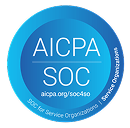
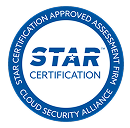











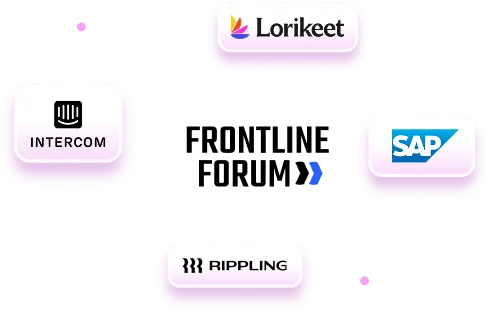
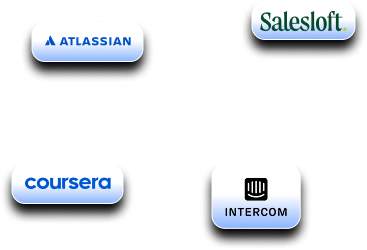


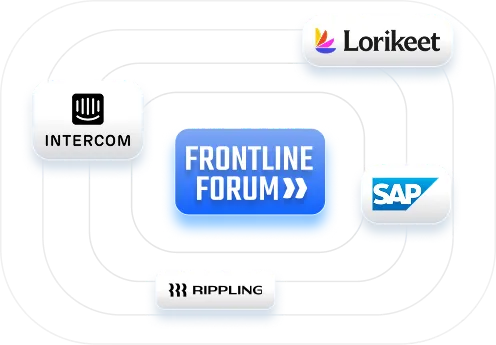
.webp)